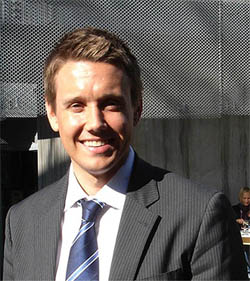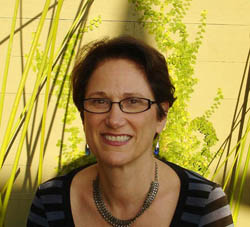|
By Ann K. Williams
Staff Writer
January 22 -- We see these people every day.
Some are painfully visible – the scruffy vagabond muttering
obscenities into the air, the woman at the Rite Aid entrance asking
passersby for spare change.
Others are harder to spot – the neighbor quietly evicted
from his home, the woman who lives discreetly with her children
in a van parked on a side street.
Some of us do more than see; some reach out and give these people
– our neighbors and fellow citizens – a chance at a
better life.
They’re Ocean Park Community Center (OPCC) volunteers.
Thanks to OPCC, Santa Monica’s homeless can find shelter
at Samoshel, our battered women safety at a Sojourn house, our citizens
suffering mental illness counseling and shelter at Daybreak and
at Campion.
But OPCC’s work couldn’t be done without the help of
men and women who aren’t content to watch from the sidelines.
Last week, three volunteers shared their stories with The Lookout
– stories of “shattered stereotypes” and
unexpected windfalls.
Brent Edgecumbe
Young, eager, with an open smile and a friendly handshake, Brent
Edgecumbe is a model salesman.
 |
He’s Vice President of
Wells Fargo Foothill Specialty Finance, but he was pitching
a great experience, not investments, last Thursday.
Edgecumbe told how his friend started a monthly “brownie
night” at Samoshel and talked him into joining him a
few years ago.
“We’d hang out with (the clients), watch TV,
talk about life, all that kind of stuff,” Edgecumbe
said. “It was easy.”
The clients needed “acceptance,” he said. “We
actually treated them like real people.”
(Photos by Ann K. Williams) |
Edgecumbe saw the homeless as the same as everyone else.
“We’re not far from it,” he said. “It’s
very circumstantial. It wasn’t something they did, something
they planned. . . it was our rapidly changing world getting ahead
of them at some point.”
As the two young men’s plans grew, Edgecumbe decided to raise
money for a Christmas party at the shelter. Now Wells Fargo Foothill
donates $3,000 to $5,000 a year to OPCC, and Edgecumbe’s a
member of the Samoshel Resource Board.
He urges others to give it a try.
“You have to check it out, see what it does for you,”
Edgecumbe said. “It really gives you a perspective on how
you should live your life.”
Besides, “you end up meeting a lot of quality people, the
people you serve with. . . it’s not quite the girl you meet
at the bar, that’s for sure.”
Beverly Weise
When Beverly Weise started offering one-on-one job counseling at
Samoshel last year, she didn’t expect that her homeless clients
would give her a fresh start at a new career.
An executive director of an international
association of legal firms, Weise volunteered to be a “talk
partner” to homeless clients at Samoshel, helping them
find and land jobs.
“What was exciting to me was that. . . within ten minutes
they’re telling you their life story,” Weise said.
“All the stereotypes you have toward the homeless are
shattered.”
She talked about the woman whose husband had locked her out
of the house, and another client who’d had a medical
illness, gone through her savings and wound up homeless.
|

|
“There’s all kinds of people and they’re in for
a variety of reasons,” Weise said.
Many were “highly educated, highly skilled and highly trained,”
she discovered.
And she also discovered how much she enjoyed their conversations
after years spent in the high-pressure world of corporate decision
making.
“To be able to sit down one-on-one with somebody and have
a conversation for more than three minutes was fabulous,”
Weise said. She’s since gotten training as an executive coach
and started her own consulting business.
When it comes to volunteering, there’s room for both selflessness
and enlightened self-interest, Weise said.
“You think you give back, but you realize you get a lot back.
I probably got a lot more back than I gave.”
Sheila Ostrow
 |
By definition, domestic violence occurs behind
closed doors, and isolation is said to be one of the worst
afflictions battered women endure.
But in Santa Monica, they have an ally in Sheila Ostrow,
a 20-year member of the Board of Sojourn, an organization
of safe houses for victims of spousal abuse and their children.
Ostrow’s become something of an expert on the social
affliction, and was eager to share her knowledge. |
“More people are more aware of it as a problem,” Ostrow
said. “They would say I would err on the side of caution if
I heard my neighbor scream, instead of saying I’m going to
mind my own business.”
Ostrow cited education programs in the schools, in churches and
synagogues and for the police as largely responsible for the change.
A polite, modest woman, Ostrow was far more interested in explaining
what Sojourn does than talking about herself.
“You only need to hit somebody once for them to be intimidated,”
she said. “Sometimes it doesn’t even take that, sometimes
you can throw something against the wall.”
The escalating cycle of intimidation, isolation, blame and self-recrimination
Ostrow described took on the character of a behaviorist “No
Exit,” making it seem remarkable that anyone could find the
strength to escape.
That’s where organizations like Sojourn come in, she said,
to support the abused and help them realize they’re not alone.
And at Sojourn, victims and their children are taught new skills
and strengths to break the hold of the destructive past.
The environment is “very, very nonviolent in every way,”
Ostrow said. Mothers learn new ways to take care of their children
“without hitting them.”
“We really have to learn to be nicer,” she concluded,
and somehow the words coming from her were convincing.
If you’d like to know more about OPCC, visit its website
www.opcc.net
And feel free to volunteer.
|